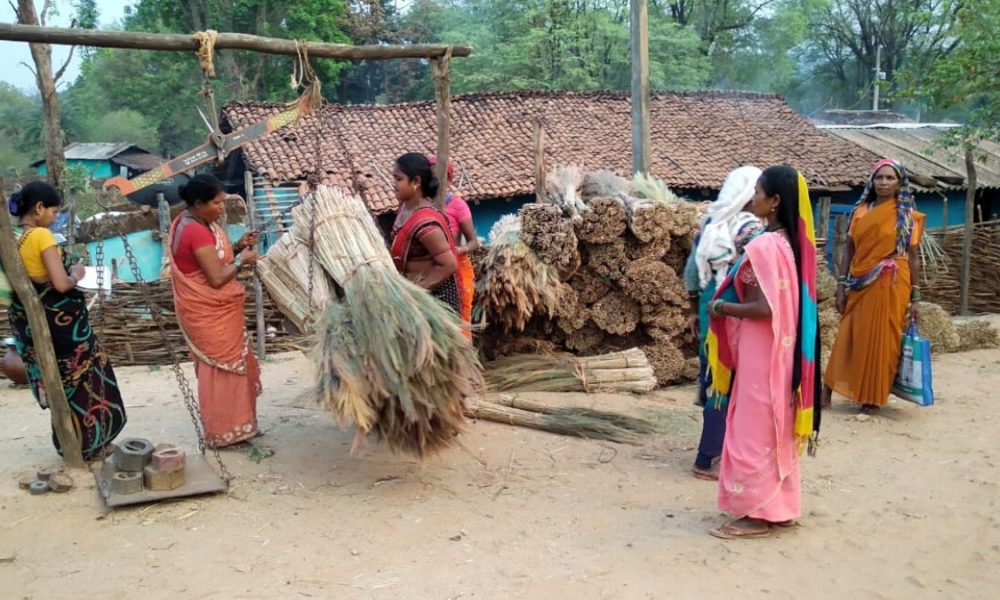Amidst the nationwide lockdown to contain the Covid-19 outbreak, when forest-based economic activities have been stalled throughout the country, Chhattisgarh has taken a different, more proactive path. So intense has been the state participation in the activities of forest produce collection that the revenue accrued to the forest-dwellers from this work is expected to be about Rs 2,500 crore.
According to the data received from the Tribal Cooperative Marketing Development Federation of India (TRIFED), one lakh quintal forest produce has been collected in the state so far, for which the collectors have been remunerated with Rs 30 crore 20 lakh. While the pandemic has drastically impeded the global economy, the collection of tribal forest produce in Chhattisgarh has improved the financial condition of tribals, besides boosting the state economy.
The new economic strategy of the Chhattisgarh government is bringing a big change in the life of the large population of forest dwellers. For instance, the state collects 15 lakh standard sacks of tendu leaves every year, owing to which 12,65,000 families are getting employment. The value of tendu leaves has been increased to Rs 4,000 per standard bag by the state government, giving them a direct benefit of Rs 649 crore. The state government has increased the number of forest products purchased through the minimum support price mechanism, from 7 to 25. A sum of Rs 930 crore worth of forest produce brought under the purview of the scheme is traded in the state.
The forest produce is being procured through 866 hot markets. Ten lakh man-days of employment are being generated in the state through wood art development, lac bangles manufacturing, dona-pattal making, drug processing, honey processing, bell metal works, and terracotta handicrafts work. Forest Development Corporation is further employing nearly 14,000 youths in the construction of bamboo tree guards, bamboo furniture manufacturing, and plantation of medicinal plants. Council of Scientific & Industrial Research (CFTRI) Mysore is also planning the production of Mahua-based energy bars, chocolates, pickles, sanitizers, amla-based dehydrated products, tamarind candies, jamun juice, among others.
The CFTRI project will employ nearly 5,000 families. Amidst the lockdown and the acute shortage of personal protection gear, 1,000 women have been employed for the sewing of 50 lakh masks. Moreover, during the current business year so far, nearly 12,000 women have received an additional income of Rs 3.23 crore from the primary processing of tamarind. To augment the income of the forest dwellers, in 2019, 18,56,000 fruitful and beneficial varieties of saplings were planted on their land, from which nearly 10.497 forest dwellers reaped benefits.
In 2020, further plantation of 70 lakh florae is planned. Moreover, 36,000 farmers have been designated in 164 production areas to promote lac production. Besides, other forest-based activities, like the production of vermin compost, have created large-scale employment opportunities in the forest areas. About 12,000 quintal vermin compost is being produced every year by 800 beneficiaries. More than 7,000 tribal youths have been employed through the recurring Charai scheme, organic manure production, and construction of seed ball.
Likewise, 30 lakh man-days of employment are being generated in the state through activities such as conservation of groundwater, improvement of degraded forests, and harvesting. Additionally, 20 lakh mandays of employment are being created through forest and riverbank planting and about 50 lakh man-days of employment are potentially available under the Narva development programme























